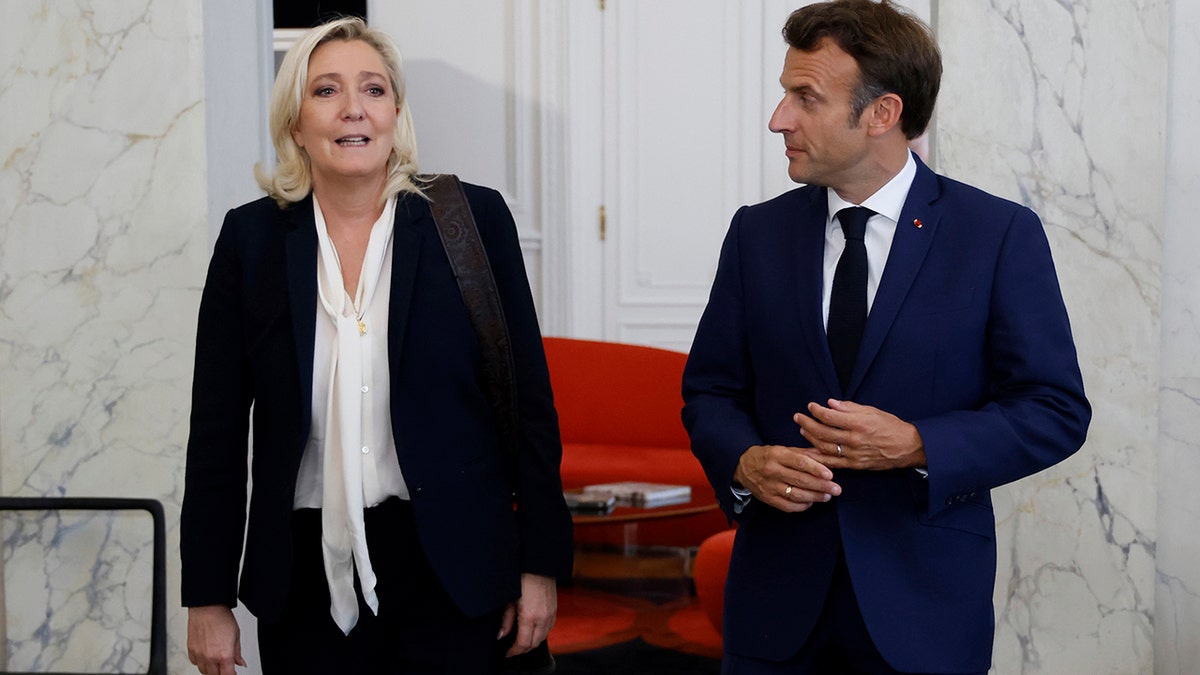Right-wing party leads in French election runoff as tactical voting strategies emerge
France is poised to see the right-wing National Rally (RN) become the largest party in government, though no single party is expected to secure a clear majority in the closely contested election as the second round of voting begins this weekend.
The first round, held on June 30, saw only 76 out of 577 constituencies in the French National Assembly determine their representative. Candidates who did not secure an outright majority are heading to the second-round runoff on July 7, Caliber.Az reports per foreign media.
The first-round results revealed voter sentiment, with RN capturing a third of the vote, the highest for any party, signaling trouble for the current government. The current administration is a coalition of parties, including President Emmanuel Macron's Renaissance (RE), Democratic Movement, Horizons, En Commun, and the Progressive Federation. Despite the assembly election results, Macron will remain president until the 2027 election.
Macron called the snap election following RN's significant success in the European Parliamentary elections in June. Pre-election polls suggested RN would continue to dominate, but recent polls indicate their lead has lessened, and they may fall short of a clear majority. A poll from Wednesday projects RN will win between 190 and 220 seats, short of the 289 needed for a majority. Their closest ally, the Republicans, are expected to win around 50 seats, making a right-wing coalition unlikely.
The New Popular Front alliance is projected to secure between 159 and 183 seats, with Macron's coalition expected to come third with 110 to 135 seats. Macron has ruled out forming an alliance with the left-wing France Unbowed (LFI), according to Le Figaro.

Candidates from Macron's coalition who reached the runoff have been withdrawing to support the strongest non-RN candidate in each constituency. Former Prime Minister Edouard Phillippe stated he would vote for a Communist candidate to prevent an RN win. Macron clarified that stepping down for left-wing officials to combat RN does not mean future governance with LFI.
Prime Minister Gabriel Attal criticized LFI as equally extreme and dangerous as RN, urging voters on social media platform X to vote against both extremes to protect the Republic.
Opposition to RN stems from its roots in the National Front, led by Marine Le Pen's father Jean-Marie Le Pen, who faced convictions for racist and antisemitic remarks. Marine Le Pen has garnered some support among Jewish voters amid rising antisemitism in Europe, but her anti-Islam views have raised concerns. In 2017, she proposed expelling foreign criminals and stripping extremists with dual nationality of their French passports.
If the polls are accurate, France may face a hung parliament with a potential alliance formed to establish leadership. Comparisons have been made to the UK's Conservative-Liberal Democrat coalition in 2010, but RN would need support from two other parties or an alliance with a direct rival.
The government has called on voters to reduce RN's chances of controlling the assembly, with Attal stressing the responsibility to block RN's absolute majority. He emphasized that voters should take action in the second round to prevent an extreme right majority, clarifying that he was not advocating for a coalition.








